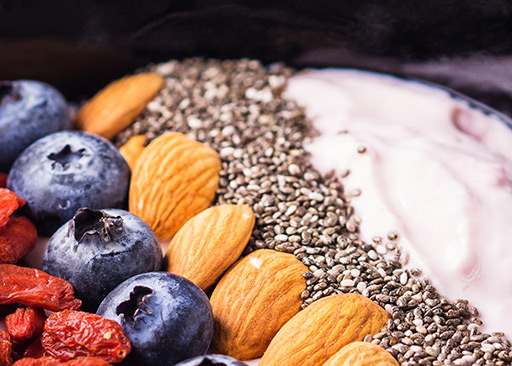Proper Nutrition Is Essential For Your Patient’s Health

Malnourishment is often associated with poverty and hunger pains rather than with poor nutrition. Fast food, ready-cooked meals, and processed foods are not good sources and can lead to numerous health problems. Constant tiredness, lethargy, withdrawal headaches, blood pressure problems, high reticulocyte count, muscle pain, and spasms can attribute poor nutrition.
Proper nutrition is crucial to supporting the immune system to help fight disease and function optimally.
The Four Food Groups
Four food groups form the foundation of proper nutrition, and these are:
– Carbohydrates are the fuel for the body and provide the energy for the body to fulfill every function.
– Protein is the basic building block for the regeneration of every cell in the body.
Fats play an essential role in storing energy, absorbing vitamins and other nutrients, insulating the body, and protecting organs. They also play a crucial role in healthy cell regeneration, which aids skin health.
– Fiber is critical in aiding digestive health.
These four food groups should form part of every meal and consumed in proportion. Excessive amounts of any of these food groups may result in weight gain and associated health conditions such as diabetes, and heart disease. On the other hand, a lack of one of these food groups can also result in a range of health problems.
Insufficient carbohydrates mean the body isn’t getting enough fuel to function. Too little fat and the body excretes other nutrients as waste. Too little protein can result in insufficient muscle mass and weakness. It is critical to find a balance and consume enough of all the food groups.
It is also essential to focus on eating “good” foods rather than consuming any foods that contain carbs, proteins, and fats. Slow release or low GI (Glycemic Index) foods are an ideal source of complex carbohydrates and energy, whereas simple carbs producing a quick surge are unhealthy and most likely to be stored as fat. Whole grains are an ideal source of low GI complex carbs.
Lean proteins are preferable as the fat from meat-based products is saturated. Saturated fats increase low-density lipoprotein (LDL) or cholesterol, leading to heart and artery disease and can result in a heart attack or stroke. Trans-fats should be avoided altogether and are contained primarily in processed foods such as margarine, cookies, potato crisps, etc. Trans fats increase LDL but also decrease “good” cholesterol.
Unsaturated fats in foods such as nuts, seeds, avocados, olives, soybean, and some types of fatty fish are “good fats” and increase high-density lipoprotein or good cholesterol. These foods are best eaten raw as cooking or heating the fats can change their chemical structure, turning them into saturated or trans-fats.
Fruit and vegetables are a good source of fiber and essential for good digestive health, and a good source of vitamins and other nutrients. However, fruit contains fructose which is a simple sugar and is only consumed in moderation. Most vegetables are low in carbohydrates and provide a good source of fiber.
Although these foods are available in supplement form, natural sources are optimal for better health and well-being. Only use supplements when one of the four food groups is unavailable in the diet for any reason, such as an allergy.
Vitamins
13 essential vitamins play different roles in maintaining proper nutrition:
– Vitamins A (retinol and beta-carotene) is available from both meat and plant-based sources and plays a vital role in protecting vision, organs (such as the lungs and kidneys) and maintaining a healthy immune system.
Vitamin C (ascorbic acid) is available primarily in plant-based foods and aids with maintaining good bone and teeth health, supporting the immune system, promoting healing, collagen formation, and iron absorption.

– Vitamin D is produced naturally in the body when exposed to sunlight and is found in plant-based foods. It helps with calcium absorption and is, therefore, promotes bone health and protecting muscle and heart health. It also plays a role in immune functions and is believed to reduce depression.
– Vitamin E is found in nuts, seeds, and other plant-based food sources. It supports the immune system, prevents inflammation, and protects heart health. It is an antioxidant and therefore also protects cells against damage from free radicals. The vitamin, thus, promotes skin and eye health and is believed to help prevent cancer.
Vitamin K (Phytonadione) is one of the lesser-known vitamins found in protein and plant-based food sources. The vitamin plays an essential role in blood clotting, promoting bone health, and aid the absorption of nutrients in the digestive tract.
– Vitamin B1 (thiamine) is found in animal and plant-based food sources and is primarily responsible for converting carbohydrates into energy. It also helps maintain healthy tissues throughout the body and protects nervous system function.
– Vitamin B2 (riboflavin) breaks down carbohydrates, proteins, and fats so that the body can use them. It is also responsible for cell health in the eyes, skin, nerves, and muscles and maintaining a healthy liver.
Vitamin B3 (niacin) is available from plant and animal-based foods and primarily turns food into energy. It also helps maintain healthy skin, nervous and digestive systems. The vitamin may also help reduce cholesterol, improve brain function, and reduce the symptoms of arthritis.
– Vitamin B5 (pantothenic acid) is found in plant and animal-based foods and is generally responsible for converting fats, carbohydrates, and proteins into energy. However, it is primarily involved in synthesizing fatty acids.
– Vitamin B7 (biotin) is found in animal and plant-based food sources and breaks down carbohydrates and fats. Its primary function is to metabolize amino acids, which are the building blocks for proteins and essential in synthesizing hormones and neurotransmitters.
– Vitamin B6 (pyridoxine) is available from plant and animal food sources and is primarily responsible for brain development and maintaining healthy nervous and immune systems. It also plays a role in metabolizing fats, proteins, and carbohydrates and creating red blood cells.
– Vitamin B12 is primarily found naturally in animal-based foods. It maintains the health of blood and nerve cells and plays a role in preventing megaloblastic anemia. It also plays a vital role in the development of DNA.
– Vitamin B9 (folate) is primarily found in leafy green vegetables and is vital for forming healthy red blood cells. It is created from folic acid by the body, aiding in developing the spinal cord, skull, and brain.
A deficiency in any of these can result in poor overall health and the development of certain health conditions or increasing contraction of illness and disease.
While it is preferable to get your daily nutritional vitamin value from naturally produced food sources, supplementing your healthy diet is advisable. It is not always possible to meet the body’s requirements for optimal functioning.


Essential Minerals
There are two categories of minerals that are essential for proper nutrition – major minerals and trace minerals. Major minerals include:
– Calcium is essential for building bones and teeth and plays a critical role in regulating blood pressure. It aids in blood clotting, muscle contractions, and nerve function. Dairy products are a good source of calcium.
– Magnesium has the same functions as calcium and helps regulate blood sugar, and aids enzyme function. Magnesium is primarily found in leafy green vegetables and water.
– Potassium plays the same role as calcium and, in addition, helps regulate heart rhythm. The mineral also aids in balancing fluids in the body. Bananas and potatoes are good sources of potassium.
– Sodium plays a vital role in fluid balance within the body and aids with muscle contractions and nerve function.
These major essential minerals are also referred to as trace elements or electrolytes and need to be balanced carefully. For example, if the body has too much potassium and not enough other minerals, an electrolyte imbalance may occur.
Electrolytes are constantly lost through sweat, urine, and other bodily fluids. The minerals, therefore, need to be replaced continuously to maintain a balance. An imbalance can result in muscles spasms, weakness, and lethargy. Deficiency in these minerals for an extended period can be fatal. The major minerals play an essential role in proper nutrition.
Trace Minerals

– Copper assists in metabolizing carbohydrates, red cell creation, and eliminating free radicals.
– Fluoride fights bacteria in the mouth and strengthens tooth enamel. Fluoride is added to water and toothpaste to promote good oral health.
– Iodine is essential for creating hormones in the thyroid gland in the body and protects it from radiation.
– Iron assists in the formation of hemoglobin (which carries oxygen) and myoglobin (the protein found in muscles). It also plays a vital role in forming amino acids, collagen, neurotransmitters, hormones, and the activation of certain enzymes.
– Manganese helps metabolize carbohydrates and plays an essential role in bone health. It also plays a role in regulating cholesterol.
– Molybdenum plays a role in the activation of enzymes and eliminates sulfites harmful to the body.
– Selenium eliminates free radicals and promotes DNA production. It is also playing an essential role in healthy reproduction and thyroid gland function.
– Zinc aids in the formation of DNA and cell division. It also assists in blood clotting and maintaining a healthy immune system.
Poor nutrition can be challenging for doctors as you are mainly reliant on what the patient says in their food frequency questionnaire. Blood and other tests can provide more information, but these tests can be invasive and uncomfortable.
Proper Nutrition With BioScan
The BioScan system provides a means to assess your patient in a non-invasive manner. It provides a color-coded chart to analyze the body. This chart is easy to read and understand and can be shared with the patient.
The system scans 14 key points to collect nutritional and other information regarding the health and well-being of the patient. As a health coach, you can then use this information to provide your patient with a tailored health plan to ensure that the body’s requirements are met.
A follow-up scan also allows you to determine whether the nutritional plan is effective and whether the patient follows the program instead of relying on their word. Adjustments can be made as necessary after each scan to ensure that your patients are consistently receiving proper nutrition.
Your patients rely on you to provide them with the best nutritional advice, and the BioScan system can provide you with the information that you need to offer them the support they need for optimal health and well-being.
